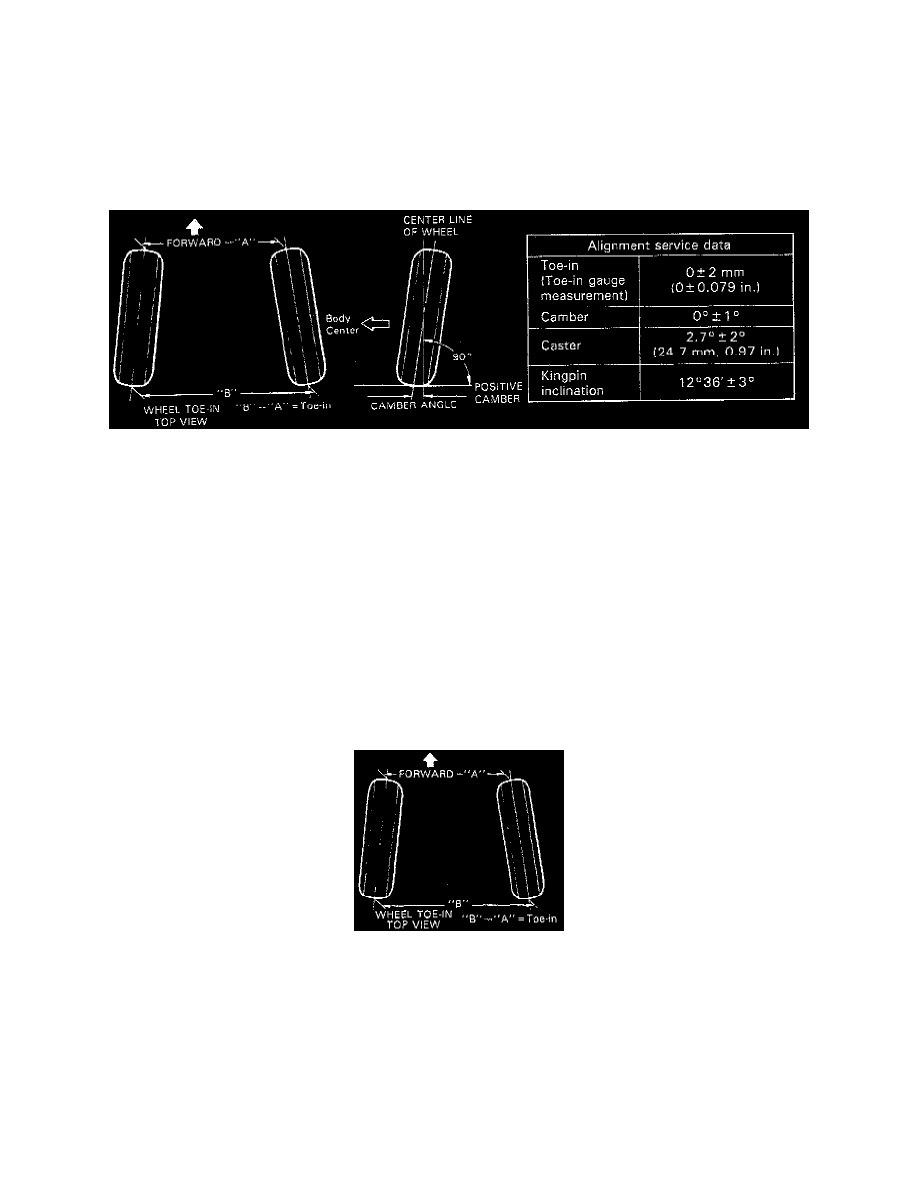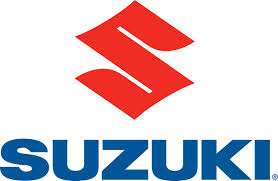Esteem GLX Wagon Plus L4-1.6L (1998)

Alignment: Description and Operation
FRONT WHEEL ALIGNMENT
Front alignment refers to the angular relationship between the front wheels, the front suspension attaching parts and the ground. Generally, the
only adjustment required for front alignment is toe setting. Camber and caster can't be adjusted. Therefore, should camber or caster be out of
specification due to the damage caused by hazardous road conditions or collision, whether the damage is in body or in suspension should be
determined. If the body is damaged, it should be repaired and if suspension is damaged, it should be replaced.
TOE SETTING
Toe is the turning in or out of the front wheels. The purpose of a toe specification is to ensure parallel rolling of the front wheels (Excessive toe-in
or toe-out may increase tire wear). Amount of toe can be obtained by subtracting "A" from "B" as shown in above figure and therefore is given in
mm (inch).
CAMBER
Camber is the tilting of the front wheels from the vertical, as viewed from the front of the vehicle. When the wheels tilt outward at the top, the
camber is positive. When the wheels tilt inward at the top, the camber is negative. The amount of tilt is measured in degrees.
REAR WHEEL ALIGNMENT
Among factors for rear wheel alignment, only toe setting can be adjusted.
Camber and caster can't be adjusted. Therefore, should camber or caster be out of specification due to the damage caused by hazardous road
conditions or collision, whether the damage is in body or in suspension should be determined and damaged body should be repaired or damaged
suspension should be replaced.
TOE SETTING
Amount of toe can be obtained by subtracting "A" from "B" as shown in figure and therefore is given in mm (inch).
